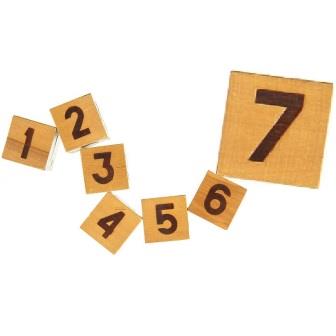The foundation for the Biblical calendar is the seven day week. This is also true with the Hillel calendar used by Jewish communities throughout the world, and in the Gregorian calendar used universally in all modern nations. The seven day week is the very first pattern established in Scripture. That has never changed.
Then God said, “Let there be light”; and there was light. God saw that the light was good; and God separated the light from the darkness. God called the light day, and the darkness He called night. And there was evening and there was morning, one day.
(Genesis 1:3-5)… a second day.
(Genesis 1:8)… a third day.
(Genesis 1:13)… a fourth day.
(Genesis 1:19)… a fifth day.
(Genesis 1:23)…a sixth day.
(Genesis 1:31)Thus the heavens and the earth were completed, and all their hosts. By the seventh day God completed His work which He had done, and He rested on the seventh day from all His work which He had done. Then God blessed the seventh day and sanctified it, because in it He rested from all His work which God had created and made.
(Genesis 2:1-3)
The seventh day of the week, the last day of the seven-day week, the Sabbath, always corresponds to Saturday (in English) on the Gregorian calendar. Here are some of the naming patterns in other languages:
- Romance Languages: The seventh day is typically called a form of Sabbatum, which reflects its connection to the Jewish Sabbath.
- Germanic Languages: In most cases, the name for the seventh day either comes from Sabbath or is associated with “washing” or “cleaning,” especially in Scandinavian languages.
- Slavic Languages: Similar to Romance languages, the seventh day is usually derived from Sabbath.
- Semitic Languages: In Arabic and Hebrew, the seventh day is directly named after Sabbath.
- Greek and Turkish: Greek uses a version of Sabbatum, while Turkish has a distinct name that connects it with Friday’s “rest” traditions.
This seven-day pattern goes back to the beginning. It was established by the Creator, and though at times men have attempted to change the pattern, this is still what prevails.
Yeshua Observed the Sabbath
As followers of Messiah Yeshua, we need only go back in history as far as his time. We are to walk in his steps, imitating him in how we conduct our lives. Yeshua did not at any time condemn, correct, or change the seven-day pattern.
And He came to Nazareth, where He had been brought up; and as was His custom, He entered the synagogue on the Sabbath, and stood up to read.
(Luke 4:16)
Throughout the Gospels – and, for that matter, the rest of the Brit Chadasha (New Testament) writings – there is never a mention of a calendar date. No names or numbers are ever given, and no reference is ever made to the beginning or end of a month or year. However, the weekly Sabbath can be found over and over again.
Christian traditions also have never changed the length of the week. Although they have transferred the solemnity of the Sabbath from the seventh day of the week to the first day of the week (in grave error, to be certain), there has never been a deviation from the continuous seven-day pattern.
The Seven-Day Pattern Never Changes
It is impossible to shift the Sabbath day from month-to-month or from year-to-year and still keep the Sabbath commandment. Yahweh made the heavens and the earth and all that is in them in six days, and on the seventh day he rested, blessed it, and set it apart. We are to continue that pattern.
Remember the sabbath day, to keep it holy. Six days you shall labor and do all your work, but the seventh day is a sabbath of the LORD your God; in it you shall not do any work, you or your son or your daughter, your male or your female servant or your cattle or your sojourner who stays with you.
(Exodus 20:8-10)Observe the sabbath day to keep it holy, as the LORD your God commanded you. Six days you shall labor and do all your work, but the seventh day is a sabbath of the LORD your God; in it you shall not do any work, you or your son or your daughter or your male servant or your female servant or your ox or your donkey or any of your cattle or your sojourner who stays with you, so that your male servant and your female servant may rest as well as you.
(Deuteronomy 5:12-14)
The Biblical Solar calendar (sometimes called the Zadok calendar) reflects this seven-day pattern. The 364-day year is a perfect, divinely ordained year. In the worldview of the Book of Enoch, this system reflects the precision of God’s creation. The concept of a 364-day year is clearly outlined in the Astronomical Book (1 Enoch 72–82), where the division of the year into 12 months of 30 days each, plus 4 additional days to total 364 days, is described in detail. And of course, 364 is evenly divisible by 7, the seven-day week. The 364-day year consists of 52 weeks of seven days.
The Confusion of a Floating Sabbath
So why do some followers of an “Enoch” calendar tend to float the Sabbath from year to year on different days of the week? The confusion comes because many who have “discovered” this calendar are enamored by books like Enoch and Jubilees. They tend to forget or discount the things found in the canonized Scriptures.
The Astronomical passages in Enoch, Jubilees, and calendar texts in the Dead Sea Scrolls are very important. They demonstrate something other than popular lunar calendars like Hillel which, by the way, can only be supported in the canonized Scriptures by exegesis (reading into the text what you want to find). But when the preeminence of the Sabbath is not acknowledged, the focus becomes solely on determining the beginning of the year. As a result, the continuous and uninterrupted seven-day cycle can get lost.
Of course, the floating Sabbath of errant Enoch calendars is not the only place where we encounter this issue. Even some lunar-based calendars fail on this point. A few lunar-based calendars even start the week over again with every new (whether dark or crescent) moon, leaving a day or two dangling at the end of the month and breaking the seven-day cycle.
The seven-day cycle is preeminent, fixed, and can never be broken. However, even the astronomical solar year presents a problem – it is approximately 365.25 days, which clearly is not divisible by 7. Hence, the confusion that has led to starting the cycle over again every solar year instead of keeping in in perpetuity.
Intercalation Is Necessary In All Calendars
So the question becomes how to handle those extra days and portions of days. The answer, though, is really straightforward.
The seven-day weekly cycle is never broken. The Biblical Solar year always begins on the fourth day of the week, our Wednesday, that follows the Spring equinox (or more accurately, the equilux when night and day are equal times). If at the end of 364 days (the Biblical year) the equinox has not yet occurred, we simply intercalate one entire unbroken week. That week is not part of the 364 days, and the cycle of seven days always remains intact.
In simplest terms, the Creator separated light from darkness on the first day of the week. If that means on that first day there was light and there was darkness in equal parts, that day was the equilux. On the fourth day, the bodies of light in the heavens were created and established as signs “for seasons and for days and for years” (Genesis 1:14). This day was the beginning of the year, and also the beginning of the first of the four seasons. It was the fourth day of the seven-day week following the time of equal day and night.
Is it really that simple? Yes, and no. There is much that goes into understanding it, and a lot of charts and mathematics to verify and prove this method. But for us to mark the seasons, days, and years – yes, it is that simple.
If you want to look into all these charts and mathematical calculations, take a look at The Scriptural Calendar: Reconstructing The 364-Day Calendar and The Intercalation Method by Christopher Collins (the link will open at Amazon where it can be purchased). His work is fascinating and intriguing – and a bit over my head at times.
May you be blessed in your study and as you keep Yahweh’s calendar. Remember to keep the Sabbath and to never break the eternal seven-day cycle. Sabbath is the Yah set apart from the rest and is the foundation of his calendar.

